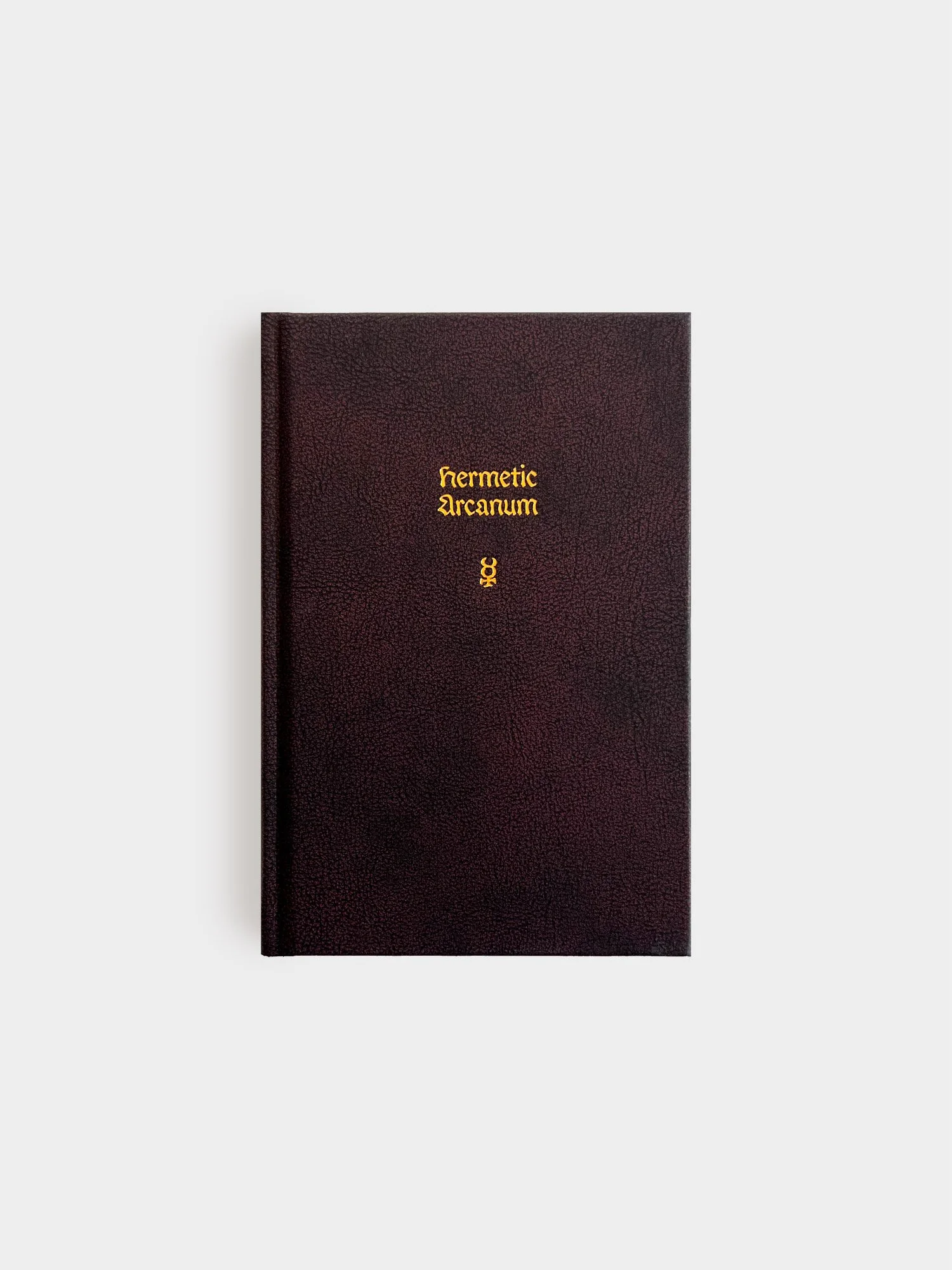Hermetic Arcanum
Hermetic Arcanum
400th anniversary edition
by Jean d’Espagnet
With new Introduction by Thomas Willard
Hermetic Arcanum was first published in Paris by Nicolas Buon in 1623, alongside another anonymous treatise by the same author, Enchiridion Physicae Restitutae. Rather than have his name appear in print, Jean d’Espagnet concealed his name in an anagram: Penes Nos Unda Tagi. Arcanum almost immediately became one of the most influential alchemical treatises on the Philosopher’s Stone, largely thanks to the unprecedented clarity with which d’Espagnet described the subsequent stages of the preparation and maturation of the Great Arcanum.
[read more below]
-
Aula Lucis
Limited Edition Hardcover. Printed in full colour on Munken Pure Rough 100gsm paper and bound in genuine re-constituted leather, with red endpapers and a red ribbon, and five black & white illustrations. Presented with a scarlet letterpress bookmark.
1st Edition, limited to 360 copies.
-
Aula Lucis
Printed in full colour on Munken Pure Rough 100gsm paper, bound in scarlet goatskin by Ludlow Bookbinders, with ribbed spine, hand-tooling and Renaissance artwork in blind and gold foil. The endpapers have been hand-marbled by Payhembury in the colours of the alchemical opus. Presented with a scarlet letterpress bookmark and a red ribbon.
1st Edition, limited to 40 copies
Description
It gives us great pleasure to commence this new series of compact volumes on Hermetic Philosophy, titled Mysterium Hermeticum, with the 400th anniversary edition of one of the most important alchemical treatises of the 17th century: Hermetic Arcanum of Jean d’Espagnet. The intention behind this endeavour is to provide definitive editions of seminal works on Alchemy, especially those scarce and out of print, at an affordable cost. Contrary to popular beliefs, Alchemy is alive and well today, and it is our hope that books which bear the imprimatur of this series will be of service to all genuine lovers of Nature and the Spagyric Art, helping to establish a new canon and standard of hermetic source-works.
Hermetic Arcanum was first published in Paris by Nicolas Buon in 1623, alongside another anonymous treatise by the same author, Enchiridion Physicae Restitutae. Rather than have his name appear in print, Jean d’Espagnet concealed his name in an anagram: Penes Nos Unda Tagi. Arcanum almost immediately became one of the most influential alchemical treatises on the Philosopher’s Stone, largely thanks to the unprecedented clarity with which d’Espagnet described the subsequent stages of the preparation and maturation of the Great Arcanum. References to this treatise appeared thereafter in the works of such eminent alchemists as Thomas Vaughan, Eireneus Philalethes, Robert Boyle and many others. The first English translation was published in 1650 and appended to Arthur Dee’s Fasciculus Chemicus by Elias Ashmole, who professed his admiration for the author. Between 1893 and 1896, W. Wynn Westcott, one of the founders of the Order of the Golden Dawn, produced a series of eight hermetic and alchemical editions under the series title Collectanea Hermetica. He chose the Arcanum Hermeticum to be the first volume, writing that “since its first publication, in 1623, in Latin language, no alchymic tract has been more widely read, & no other has been so often reprinted, alike in Latin, German, French & English.”
In preparing this quadricentennial edition of Arcanum, we endeavoured to honour above all the original Latin version of the text, correcting Westcott’s and Ashmole’s translations where necessary, preserving the original marginal notations, as well as rewriting and enlarging some of the Commentaries which appeared in the 1893 edition. We have also preserved and carefully reproduced the original 1623 Renaissance page ornaments and illuminated initials, thus making sure that this edition is as useful to the serious scholar and practitioner, as it remains faithful to its original, and above all to the spirit of its author.









